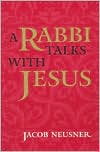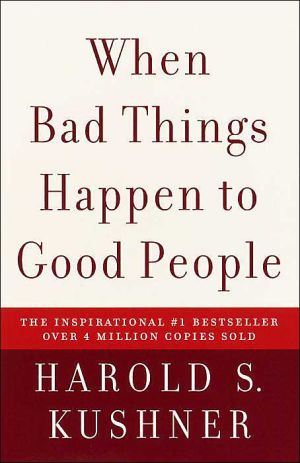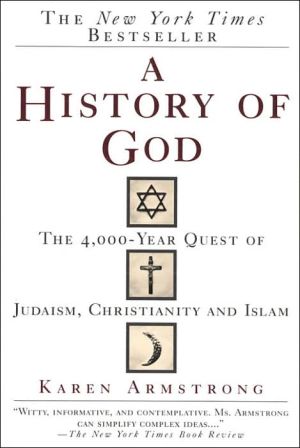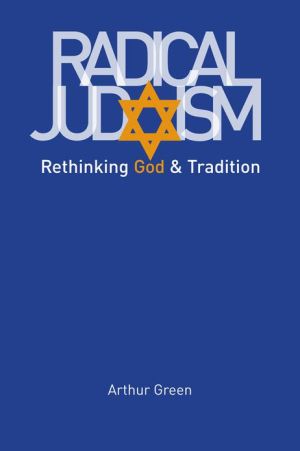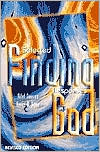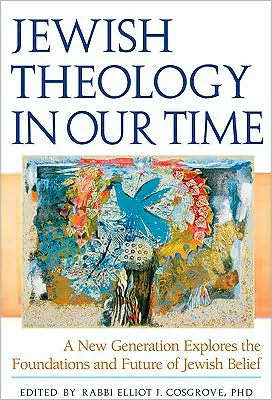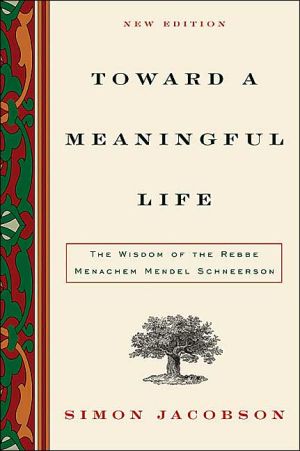A Rabbi Talks with Jesus
Placing himself within the context of the Gospel of Matthew, Neusner imagines himself in a dialogue with Jesus of Nazareth and pays him the supreme Judaic gesture of respect: making a connection with him through an honest debate about the nature of God's One Truth. Neusner explains why the Sermon on the Mount would not have convinced him to follow Jesus and why, by the criterion of the Torah of Moses, he would have continued to follow the teachings of Moses. He explores the reasons Christians...
Search in google:
Imagine yourself transported two thousand years back in time to Galilee at the moment of Jesus' Sermon on the Mount. After hearing it, would you abandon your religious beliefs and ideology to follow him, or would you hold on to your own beliefs and walk away? In A Rabbi Talks with Jesus Jacob Neusner considers just such a spiritual journey. Publishers Weekly In a highly challenging, contentious exegesis that is almost certain to provoke interfaith dialogue, an eminent scholar of Judaism explains why, if he had lived in Israel in the first century, he would have refused to join Jesus and his circle of disciples. Neusner, whose books include Jews and Christians and (with Andrew M. Greeley) The Bible and Us , argues that the Jesus of the Gospel of St. Matthew called into question the primacy of the family and violated the sanctity of the Sabbath. Casting himself as a local rabbi in biblical times, Neusner engages in an imaginary dialogue with Jesus, a Jew who explicitly claimed that he came to fulfill the Torah, not to destroy it. To Neusner, Jesus's message, summed up as ``leave home, follow me,'' shortchanged the priorities of home, family, community and the social order that the Torah had commanded Israel to bring into being. Neusner's earnest polemic will compel both Jews and Christians to look more deeply at the sources of their faith. (Feb.)
AcknowledgmentsForeword1Come, Let Us Reason Together32A Practicing Jew in Dialogue with Jesus183Not to Destroy but to Fulfill vs You Have Heard That It Was Said, But I Say to You354Honor Your Father and Your Mother vs Do Not Think That I have Come to Bring Peace on Earth535Remember the Sabbath Day to Keep It Holy vs Look, Your Disciples Are Doing What Is Not Lawful to Do on the Sabbath736You Shall Be Holy; for I the Lord Your God Am Holy vs If You Would Be Perfect Go, Sell All You Have and Come, Follow Me897You Shall Be Holy vs Holier than Thou1118The Road from Capernaum1279You Shall Tithe All the Yield of Your Seed vs You Tithe Mint and Dill and Cumin and Have Neglected the Weightier Matters of the Law13410How Much Torah, After All?151
\ Publishers Weekly - Publisher's Weekly\ In a highly challenging, contentious exegesis that is almost certain to provoke interfaith dialogue, an eminent scholar of Judaism explains why, if he had lived in Israel in the first century, he would have refused to join Jesus and his circle of disciples. Neusner, whose books include Jews and Christians and (with Andrew M. Greeley) The Bible and Us , argues that the Jesus of the Gospel of St. Matthew called into question the primacy of the family and violated the sanctity of the Sabbath. Casting himself as a local rabbi in biblical times, Neusner engages in an imaginary dialogue with Jesus, a Jew who explicitly claimed that he came to fulfill the Torah, not to destroy it. To Neusner, Jesus's message, summed up as ``leave home, follow me,'' shortchanged the priorities of home, family, community and the social order that the Torah had commanded Israel to bring into being. Neusner's earnest polemic will compel both Jews and Christians to look more deeply at the sources of their faith. (Feb.)\ \ \ \ \ Library JournalHere Neusner, a distinguished theologian and author of more than 400 books on Judaism, conducts an imaginary dialog with Jesus (as portrayed in the Gospel according to Matthew): ``In this book I explain in a very straightforward and unapologetic way why, if I had been in the Land of Israel in the first century, I would not have joined the circle of Jesus' disciples.'' Although the dialog is somewhat one-sided at times, understandably enough, a number of doctrinally valid and insightful points arise, and Neusner effectively sheds light on the question, ``Why, while Christians believe in Jesus Christ and the good news of his rule in the Kingdom of Heaven, Jews believe in the Torah of Moses and form on earth and in their own flesh God's kingdom of priests and holy people?'' A lively and intriguing work that should interest, enlighten, and challenge thoughtful readers of both faiths. Highly recommended.-- Marcia Welsh, Guilford Free Lib., Ct.\ \
